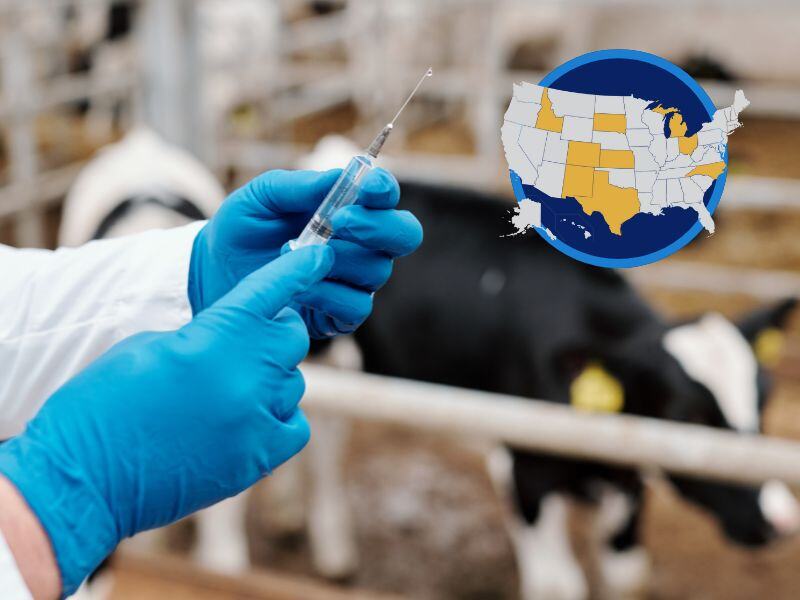Advanced Vaccine Platforms & Technologies

One of the most trending vaccine platforms of the 2020s has been the mRNA platform. The mRNA vaccine deployed by Pfizer and Moderna became paradigm-shifting during the COVID-19 pandemic. The mRNA vaccines, which trigger an immune response via delivery of a lipid-encapsulated mRNA molecule coding for the target protein antigen (in this case, the COVID-19 Spike protein), began their official rollout in late 2020.
The subsequent intracellular translation and expression of the Spike protein antigen have triggered a potent and protective immune response in clinical trials and real-world applications. As such, the pioneering platform soon became the backbone of the US vaccination strategy. However, despite the phenomenal success of mRNA technology during the pandemic, there remain limitations to the platform technology.
Advancing the Vaccine Platforms
During Oxford Global’s Advanced Vaccine Platforms & Technologies, leader Wieslaw Swietnicki, Head of Research and Development at the Institute of Industrial Organic Chemistry, delved into some of the key projections for the future of the mRNA platform. “Although mRNA allows you to develop a vaccine very quickly, it has limitations because it only facilitates short peptides coded by the DNA.”
With mRNA, it is only possible to have seventy amino acids maximum, which becomes problematic during infection as COVID-19 has up to 15,000 amino acids. The significant disparity and deficiency mean “the vaccine is working against an immense challenger,” Swietnicki explained. Slobodanka Dina Manceva, Associate Director in Drug Product Development at Teva Pharma, who helped to co-lead the discussion, agreed with Swietnicki. In particular, she expressed that “whilst mRNA is great for delivering a fast approach to vaccination, there is still a lot of work to be done to improve its efficacy.”
- Why We Develop Autoimmunity: Hyperstimulation of Genetically Prone Subjects
- mRNA Therapeutics: Learning from Preclinical Concepts to Ensure Clinical Translatability in Nanomedicinal Approaches
- Sane in the Membrane: Salipro One-Step Reconstitution of GPCRs and Ion Channels
Recommendations for advancing mRNA vaccines include focusing on target-based design during development to ensure delivery to the receptor binding site. “It is essential that we consider how the antibodies will be actively able to search for and recognise the mutation site of the virus,” Swietnicki continued. Manceva agreed, attesting to the need for clearly exposed target indicators.
Improving Efficacy of Injectables
“A lot of the industry right now is looking to improve the efficacy of vaccine platforms by taking spike proteins and collating them into a self-assembling vacuum insulated panel,” Manceva confirmed. “This involves putting multiple different types and subgroups of the virus spike proteins onto the same data loss prevention tool to then introduce it as a vaccine,” she continued. Manceva pointed out that although such protocols offer a promising means of advancement, proven efficacy highly depends upon the specific indication being used.
“I think we are up for a challenge; there is no straightforward answer to what would be the best way and approach to furthering the efficacy of advanced vaccine platforms,” Manceva confirmed. “However,” she continued, “we will need to guide and base the chosen approach on the disease itself.” Swietnicki offered a similar opinion, drawing examples from influenza and HIV vaccine. Audience members likewise suggested the possibility of developing vaccines recognised by the body in the same manner as the live attenuated viruses but without the significant side effects.
Edible Vaccines: A Potential Path Forward?
Conversation then turned towards the potential of using edible vaccines. Developed by biotechnologists, edible vaccines are developed by subunit vaccines (containing fragments of protein from the pathogen) where selected genes are introduced into plants. The transgenic plants are then induced to manufacture encoded proteins for foods such as potatoes, bananas, lettuce, corn, soybeans, and rice.
“A lot of the industry...is looking to improve the efficacy of vaccine platforms by taking spike proteins and collating them into a self-assembling vacuum insulated pane”
Manceva and Swietnicki discussed how edible vaccines are cost-effective and easy to administer. “What is also encouraging is the fact that edible vaccines are easy to store and can be administered to numerous age groups,” Swietnicki said. When asked by the audience whether there were any known drawbacks to this technology, Manceva acknowledged the potential consistency issue.
“The industry is currently navigating the questions of how to qualify the amount of the vaccine protein that is expressed into a plant consistently,” she explained. Swietnicki also highlighted the fact that plant vaccines rely on mucosal membrane absorption, which means they are not protected from intestinal tract degradation.
Areas of innovation for edible vaccines tend to focus on adjuvant development to produce specific adjuvants to stimulate either T-memory or B-cell responses. Nevertheless, the platform presents exciting possibilities for significantly impacting various diseases. In developing countries, edible vaccines are predicted to reduce measles, hepatitis B, cholera, and diarrhoea.
Final Thoughts
At Oxford Global, we couldn’t have been more pleased with the turnout for our September Biologics Discussion Group. The conversation was engaging, the debate stimulating, and the industry insights invaluable. The discussion concluded with some final thoughts on the future of advanced vaccine development and the anticipated steps to unlock the next generation of vaccine technologies.
We will continue our Discussion Group series in October with a session focusing on Exploring & Developing Various Biotherapeutics Modalities, which will be led by Galahad Deperalta, Senior Scientist and Innovation Group Leader at Genentech. To gain exclusive access to the upcoming sessions in our Biologics series, click here to find out more about our membership offerings.
Join Oxford Global’s annual Biologics UK: In-Person event today. This 3-day conference brings together a panel of prominent leaders and scientists, sharing new case studies, innovative data, and exciting industry outlooks.








